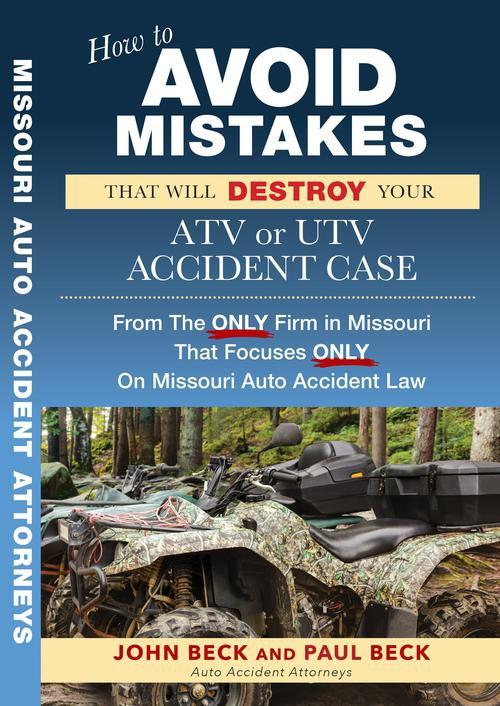Following a car accident in Missouri, receiving a settlement might seem like the end of the ordeal; however, it can quickly get more complicated when a hospital, doctor, or health insurance provider files a medical lien seeking part of it.
They’re essentially claiming a portion of your settlement as repayment for the treatment they provided, and many people don’t expect this. In some cases, the lien isn’t even legally valid.
These claims often show up without warning, and even if you didn’t sign anything or agree to reimburse them, they may still file in hopes of collecting something before you receive your share. Sorting through these claims becomes frustrating, especially when some are legitimate while others are not.
The paperwork doesn’t always explain your rights clearly, which adds to the confusion. Missouri law has specific rules that govern when liens are allowed and how much can be taken, so understanding what’s valid and what’s not is essential.
In this article by skilled Missouri car accident lawyer Paul Beck, we discuss what medical liens are, how they work, how they are repaid, and more.
What Exactly Is a Medical Lien?
After a Missouri car accident, it’s not unusual to face high medical bills—especially if you don’t have insurance or can’t afford the cost of care. In some cases, a medical provider might agree to treat you without requiring payment upfront.
Instead, they’ll file what’s called a medical lien, meaning they expect to be paid later from whatever money you recover in a settlement. That lien gives them a legal right to a portion of what you eventually receive.
How It Works
A medical lien is basically an agreement between you and the provider. They offer treatment now and hold off on collecting payment until your case is resolved. If you settle or win in court, they get their share from the payout before anything goes to you. The provider becomes what’s called a lienholder, and once the case is over, they expect to be paid before you receive your final check.
Why Providers Use Them
Medical liens are commonly used when a person doesn’t have the money to pay for medical care after an accident. This comes up a lot for people who don’t have insurance or have high out-of-pocket costs. When injuries are severe, the medical expenses can quickly become overwhelming.
Where the Money Goes
After your case ends, the lawyer or insurance company usually pays off any medical liens first. That happens before you see what’s left of the settlement.
If there’s a dispute over the amount, it may take a bit longer to sort out. That’s one reason these liens can delay your final payment.
Can a Lien Affect Your Property?
Some states let medical providers place a lien on your personal property, like your home or car. But under Missouri law, liens are usually limited to the money you recover from a settlement—providers can’t go after your personal assets to collect payment.
That said, it’s still important to check exactly what you signed and what the provider is asserting, since not every lien is enforceable.
Medical liens can be helpful, but they also come with strings attached. Knowing what they are—and what they’re not—can help you better protect your recovery.
Hospital Liens Under Missouri Law
Missouri has clear statutes that govern how and when medical providers can assert liens on accident-related settlements. Knowing these regulations is important if you want to protect your share of the recovery.
Written Notice & Timing
Under RSMo §430.240, a valid lien must begin with a formal notice sent via certified mail (with return receipt) to both the at-fault party’s insurer and your attorney. This notice is required to include:
- Your full name and address
- Date of the accident
- Name and address of the medical provider
Importantly, the lien amount doesn’t have to be finalized at this stage, as the notice is usually filed early in treatment.
Scope of Collection — Settlement Only
RSMo §430.225 outlines that lienholders are entitled to 50 % of the remaining settlement after attorney’s fees and case expenses. If multiple providers file liens, they share that 50 % pro-rata. This section also clarifies that chiropractors and other licensed health professionals enjoy the same lien rights.
Limits on Personal Assets
Because Missouri allows liens only against the settlement—not your home, car, or other property—healthcare providers cannot pursue your personal assets to collect. This protection arises from RSMo Section 430.230, which limits legal recourse to settlement proceeds only.
What It All Means for You
- Providers must follow a strict notice procedure in order for their lien to be enforceable.
- Only half of your net recovery—after attorney fees and costs—can go toward liens, to be shared fairly among all lienholders.
- Your personal assets remain off-limits, protecting your financial well-being beyond the insurance recovery.
Knowing how Missouri’s lien laws operate can make it easier to challenge a provider’s claim if it isn’t filed properly—whether they failed to give proper notice, are requesting more than they should, or are going after funds they don’t have a right to.
If you’re dealing with a lien that seems questionable, don’t agree to anything until you’ve taken a closer look.
Shouldn’t Health Insurance Cover My Medical Expenses?
After a crash, many people assume their health insurance will take care of all their medical bills. While insurance may cover treatment initially, it often comes with strings attached. This is where subrogation comes in.
When your health insurer pays for care related to your accident, they usually expect to be reimbursed once you get a settlement from the at-fault party’s insurance. That repayment process is what surprises many accident victims later on.
Insurers don’t always explain that they may file a lien on your case. Once you settle, they can collect directly from that amount before any funds reach you. Even if they covered your care as expected, they may still seek a portion of your recovery to make themselves whole.
This system allows insurers to avoid footing the bill long-term, but it can leave you with less than you expected when your case is over.
Understanding how subrogation works—and how it affects your bottom line—is important if you want to avoid confusion later. If a health insurer files a lien, it doesn’t always mean you owe what they’re asking. Reviewing the claim carefully can help you figure out what’s enforceable and what isn’t.
Why Do Hospitals Assert Medical Liens?
Hospitals sometimes decide not to bill your health insurance after a crash, even if you have coverage. Instead, they file a medical lien, aiming to get paid from your future settlement. This choice is often financial—if they bill insurance, they’re limited to the insurer’s lower contracted rates.
A lien allows them to seek the full amount of the bill and potentially recover more.
In other situations, a hospital may assert a lien because you didn’t have insurance at the time. Filing a lien gives them a way to move forward with your treatment while protecting their ability to collect payment once your case resolves. That can help you get needed care, but it also means part of your recovery might go directly to the hospital.
Regardless of the reason, a hospital lien can affect how much you ultimately receive from your case. It’s important that any lien is filed properly and follows Missouri law. If it isn’t, you may have grounds to challenge it.
How Are These Liens Paid Back?
As we stated, if a medical lien was filed in your case, it usually gets paid directly from your settlement or court award. The money doesn’t go to you first—lienholders are often paid before any funds are disbursed. This can come as a surprise, especially if you weren’t fully aware of the lien or didn’t understand the paperwork you signed at the time of treatment.
Once your case wraps up, your attorney—or the insurance company if you’re unrepresented—will typically handle payment of any valid liens. That amount is taken out of your total recovery, and whatever’s left is what you actually receive.
Depending on the size of the lien and the settlement, it’s possible for most or even all of your compensation to go toward outstanding medical bills.
Hospitals and other providers aren’t required to forgive the lien if your case doesn’t result in a payout. You may still owe the full amount, even if you lose. That’s why it’s important to understand the terms of the agreement upfront and make sure any lien was filed properly under Missouri law.
Before accepting a final check, make sure you know who’s getting paid and how much—so you’re not caught off guard when the numbers don’t match your expectations.
Are There Ways to Reduce a Medical Lien?
Reducing the amount you owe under a medical lien is often possible, especially when the charges seem inflated or when your recovery isn’t large enough to cover everything. With the right approach, your attorney may be able to reduce the lien so more of your settlement goes to you.
Negotiation Is Common
Hospitals and other providers often agree to reduce a lien rather than risk collecting nothing. If your lawyer can show that full payment is unlikely—or that the amount listed is unreasonable—they may be open to compromise. These discussions usually happen toward the end of your case, once the provider knows the total settlement amount and how much you’re set to receive.
Scrutinizing the Charges
Sometimes lien amounts include inflated costs or duplicate charges. Your lawyer can examine your full billing history to make sure you’re not being charged twice for the same service—or for anything that was already paid by you or your insurer. Any overcharge or error can become a point of leverage in negotiations.
Legal Grounds for Reductions
In cases where your medical bills far exceed the available insurance coverage, Missouri law allows your attorney to argue for a fairer distribution of the funds. While there’s no fixed percentage like some other states offer, courts can weigh whether a lien is excessive given the overall settlement. If needed, your attorney can file a motion with the court to formally challenge the lien amount.
It’s Worth Reviewing
Even if a lien appears legitimate on its face, it’s always worth having it reviewed. You may not be stuck with the full amount, and there may be valid reasons to reduce what’s owed.
What If I Do Not Win My Car Accident Case?
As we mentioned, losing your car accident case doesn’t necessarily cancel out any medical debt tied to a lien. In most cases, the provider still expects to be paid. That’s part of the risk they agree to when offering treatment upfront, but it’s also why they make the lien legally binding no matter how your case turns out.
Most medical providers understand that repayment may take time, especially if your case didn’t result in a recovery. It’s common for them to offer payment plans so you can make reasonable monthly payments instead of covering the full balance right away. That said, you’re still on the hook for the amount listed unless the lien itself says otherwise.
Before signing any lien agreement, it’s important to understand what you’re committing to. Some agreements include specific repayment terms in case the case is lost, while others leave those details open. Either way, you don’t want to be caught off guard if there’s no settlement and the provider starts asking for payment.
If your case isn’t successful, your attorney may still be able to negotiate the lien amount down or work out alternative payment terms. But those options depend heavily on the terms of the original agreement and the provider’s willingness to negotiate.
Steps to Manage Your Hospital Liens
Medical liens can impact your final recovery, but there are practical steps you can take to stay in control and avoid surprises. Here’s how to handle them:
- Talk to a Personal Injury Attorney at Beck & Beck Missouri Car Accident Lawyers Early: Our experienced lawyers can explain how medical liens work, review any lien claims filed against you, and deal directly with providers or their billing departments to help protect your recovery.
- Read Every Agreement Before Signing: If a provider asks you to sign a lien, don’t rush. Make sure you understand the terms—especially what you’ll owe if your case doesn’t succeed or if the lien amount changes during your treatment.
- Double-Check the Lien Details: Not every lien is filed correctly. Review the information closely. Look for errors in dates, treatment descriptions, or billing amounts. If anything looks off, your attorney can push back.
- Negotiate When Possible: Even valid liens can often be reduced. Your attorney may be able to argue for a lower amount based on overcharges, billing mistakes, or fairness concerns when your settlement isn’t enough to cover everything.
Staying on top of hospital liens helps you keep more of your settlement and ensures you’re not paying more than you legally owe.
Consult With Our Experienced Missouri Car Wreck Lawyers
At Beck & Beck Missouri Car Accident Lawyers, we focus especially on Missouri car accident cases, and we understand how overwhelming medical liens and hospital bills can be after a crash. If you’re unsure what you signed, facing pressure from a provider, or just trying to make sense of a lien notice, we can step in and help.
Our team will review your case, verify whether the lien is valid, and negotiate with providers to help reduce what you owe—so more of your settlement stays with you.
We know what’s fair under Missouri law and what’s not. We’ll make sure your rights are protected and that no one takes more from your settlement than they should.
If you’ve been injured in a car accident and need help with medical bills or lien disputes, don’t wait. Contact us today for a free consultation and get clear answers about your next steps.
Related Articles
Paying medical bills after a car accident in Missouri
The cost to hire a Missouri car accident lawyer
Paying for physical therapy after a car accident in MIssouri







